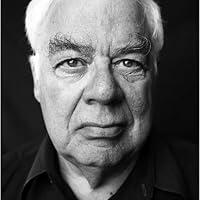
Richard Rorty
Über den Autor
Richard Rorty was an influential American philosopher known for his contributions to pragmatism and literary theory. He challenged traditional notions of philosophy by advocating for a view that emphasized the importance of language and conversation in shaping human experience. Rorty's work often focused on the idea that philosophical problems should be seen as part of a broader cultural conversation rather than as isolated intellectual puzzles. His most famous works include "Philosophy and the Mirror of Nature" and "Contingency, Irony, and Solidarity," where he argued against the idea of objective truth, proposing instead that knowledge is contingent upon the context in which it is framed.
Throughout his career, Rorty engaged with various philosophical traditions, drawing on the ideas of figures such as John Dewey and William James. His views have sparked significant discussion and debate, positioning him as a key figure in contemporary philosophy. Rorty's emphasis on the practical implications of philosophy has influenced fields beyond philosophy itself, including literary studies and political theory. He cherished the idea of a democratic society where diverse voices contribute to a shared understanding, making his work relevant to discussions of culture and social change.